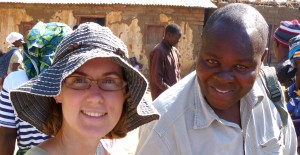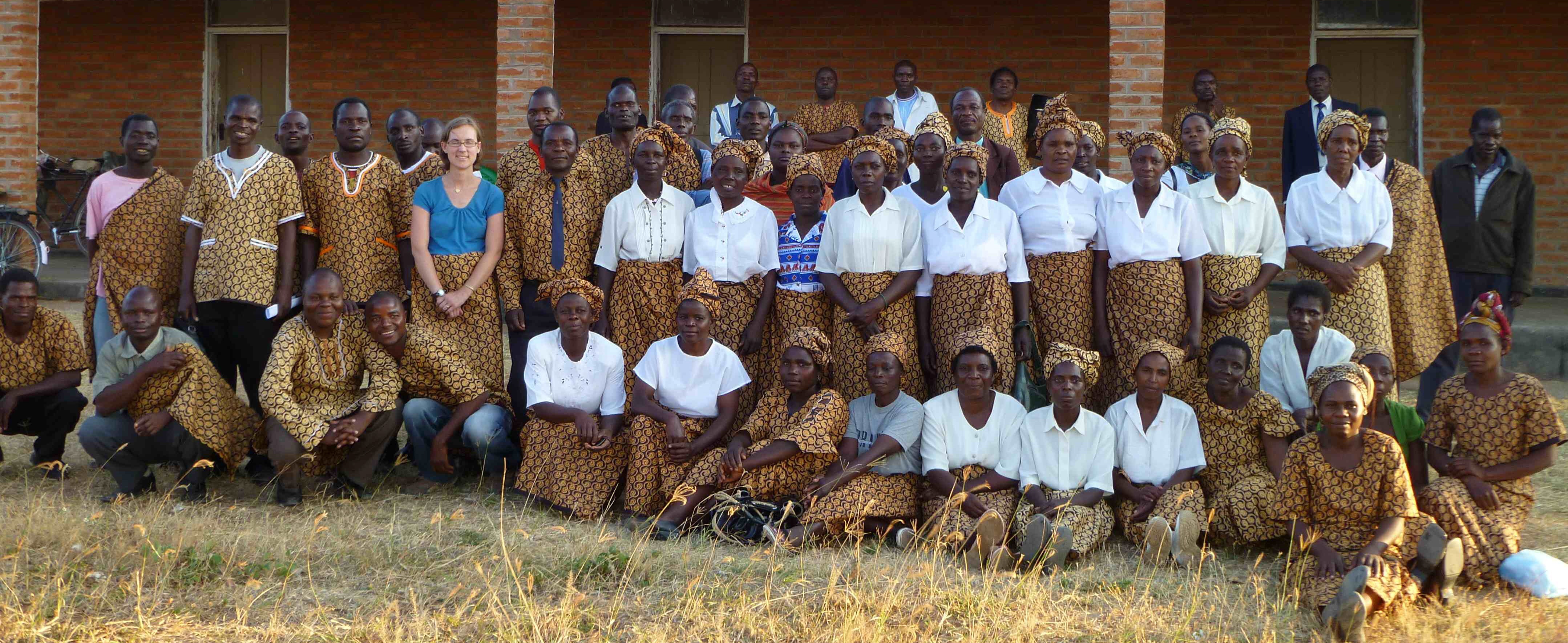Tanya Cothran writes about how an idea, some information sharing, and a little bit of money can go a long way at the local level when people are behind an initiative. In addition to providing small community-focused grants to build economic security in Africa, Spirit in Action (SIA) also focuses on knowledge sharing. Tanya, who is the Executive Administrator of SIA, shares her reflections following a grantee visit in Malawi earlier this year.
***

Last spring, Canaan Gondwe, a Spirit in Action partner living in rural Malawi, emailed me wanting to find more information about creating a savings and loans group in his community of Manyamula Village. At Spirit in Action (SIA), we have a broad focus for our grants, responding to the needs of the community, which means that I am constantly learning about the various needs of individual communities and the different approaches community groups take to address these needs.
Gondwe’s email told me that when farmers and small shop owners in his community needed additional capital to expand their business, buy fertilizer, or build a shop, they had to travel to the town of Mzimba, 22 km away. Mzimba has several microfinance institutions purporting to help the poor gain access to credit, however, Gondwe saw that people were not gaining financial security through the loans but that they were instead losing collateral and paying exorbitant interest rates, even up to 48% for a two-week loan!
I was interested in working with Gondwe to find an alternative that might better serve him and his village. With my librarian-trained research skills, I found some sample documents for village savings and loans groups and a model constitution put together by Trickle Up for their Savings and Credit Groups. We corresponded for months about ways to organize, get more people involved, and fund this program.
At the end of last year, Gondwe gathered together forty-one other people to form the Manyamula Village Savings and Loans group (MAVISALO). They applied for and received a small grant from Spirit in Action to start a poultry house that would serve as the start-up capital for their loan fund. Members also bought member shares of about USD$6.50 each to join the group. Several widows who could not pay the initial fee were invited to participate anyway, with their part funded by the chicken profits.
Since their start in 2010, MAVISALO has generated USD$950 from three rounds of broiler chickens and has given out 40 loans, totaling over USD$8,000. Their repayment rate is 98.8%. Also, because the program is community-based, the interest generated from the loans (at the rate of 5% per month) goes back into the loan fund so that more people have the opportunity to borrow and expand their businesses. “Members of MAVISALO are able to save through shares given to their local-based institution and also they are able to access loans for their economic empowerment,” explains Gondwe.

When I visited Manyamula this past July, I saw that MAVISALO was about more than just economic empowerment and loans. The whole group meets once a month to review their constitution and address any concerns. At these meetings, they work entirely through consensus agreement so that everyone is included in the discussion. Also, since they work together in the poultry house, sharing shifts to watch over the baby chicks, they are building a strong team where everyone contributes.
As an outsider and a visitor, I know that I only got to see a presentation about the program, rather than live with that program. Indeed, since this was my first time to Malawi, I was learning about the culture as I was there. However, rather than be overwhelmed by my uncertainties, I surrendered to the experience and, in the end, came away so grateful for the local leadership of the project. I appreciated that SIA is built on trust of the local leadership, relying on their knowledge of the village context of business and credit.
During the visit, I also built a stronger relationship with Canaan Gondwe and I came away so grateful for his leadership and community involvement. He is able to make this savings and loans group successful by adapting it to fit local realities, especially as the program continues to grow, expand, and face challenges. I also saw how much time and effort he was giving to the program. Before, I pushed aside his requests for funds to cover administrative costs, but now I am working with him to define the administrative responsibilities and explore how SIA and MAVISALO might adequately compensate him and others for their energy and expertise, so that the program can continue to thrive.
***
To learn more about SIA’s work, you can contact Tanya at spiritinaction@sbcglobal.net. You can also follow the SIA blog and watch a video about MAVISALO here.
***
Related Posts
What’s missing from the aid effectiveness debate? Overlooking the capacity of local organizations
Reaching Girls at the Grassroots – A Sound Investment (Part 1)
Exchange Visits Among Local Organizations—Here’s How!


Tanya, I am so proud of you!! Let me know how I can help! My University of Texas Medical Branch offers a free series of podcasts on new biomedical discoveries, breakthroughs and general health issues. These podcasts can be aired on any radio station to help the people understand the issues of tropical infectious health diseases and solutions.
Medical Discovery News” is a series of 2 minute FREE podcasts hosted by two of the most prestigious researchers in the U.S and world-wide — The voices and energy behind Medical Discovery News are two scientists and researchers, David W. Niesel, PhD and Dr. Norbert Herzog, PhD with the University of Texas Medical Branch’s Department of Microbiology and Immunology at UTMB and members of the Center for Biodefense and Emerging Infectious Diseases and the Center for Tropical Diseases.
If there are radio stations where you are, these podcasts are FREE and easy to download through one private link or we can send CD’s through the mail…and our doctors love to send t-shirts…as many as you need. I hope this can help your funding in some way and present vital health information to Spirit in Action. You are certainly an angel, Tanya! If I can help in any other way, please let me know. God Bless you! Sherryjane Cooke. My e-mail address is SherryJCooke@aol.com
Dear Sherry:
I am grateful for the SIA which is impacting on lives in Eastern Africa and perhaps else where. I am personally of the opinion that given the post-war status of Liberia, our primary goal should be the promotion of peace through the fostering of unconditional love activities to heal the wounds. I have designed a set of programs mainly to unite the youth and could share with you for your involvement if your would not mind.
Kindest regards.
Thanks Tanya for this wonderful sharing of a great and successful intervention in Malawi under the Spirit in Action. Surely the group is reaping great rewards for their efforts as they are enjoying the benefits of being empowered in terms of team development, economic aspects due to access to cheaper loans etc-that is a great help to the community as the community must also be enjoying the availability of chickens every time the group offloads for sale.
This is very interesting for me as the local groups are in the lead and learning as they go along while empowering each other through the profits and low cost loans-i am thinking this project is more likely to be sustainable and provide real empowerment to the members of the group.
Tanya, thank you for your vision and leadership with SIA and the impact you are making on individuals and communities in Africa. This is an excellent example of how collaboration and teamwork can make a signficant difference in the lives of others. Providing the tools and resources for the community to take ownership of the project, does promote sustainiblity of the project.
Thank you for the positive feedback and comments! I am glad to hear that what we are doing with Spirit in Action resonates with your experiences of promoting project sustainability and local ownership.
If only all international development programs operated like this, most villages in rural areas would be self sufficient.
Yes, yes and yes! Well done and thanks!
Pingback: Local Action in Ghana | Spirit in Action International
Mm h good intervention worthy of praise. I think the small donors are really doing a good job with their little cash as compared to the large donors.
Good work Tanya. You can roll the program out to Kenya.